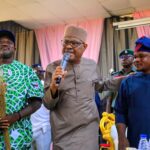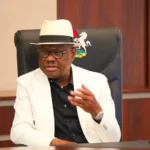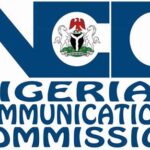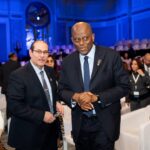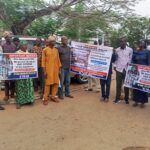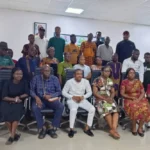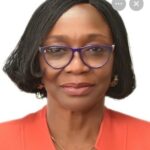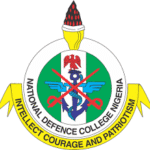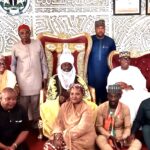Promoting peace, democracy in W/Africa through election observation
By Emmanuel Oloniruha, News Agency of Nigeria (NAN)
Globally, elections have not only become a commonly accepted means to legitimize governance institutions, it is also considered as the main pillars and backbones of democracy.
Though democracy largely remains the form of recognised government in West Africa, analysts have identified elections as one of the major factors that trigger violence and insecurity in the sub-region.
According to a publication, “Electoral Commissions in West Africa – a comparative study (Second edition)’’, published in Nigeria by Friedrich-Ebert-Stiftung in 2011, in countries of the West Africa, elections have been a primary conflict generating factor.
The publication co-authored by Mr Mathias Hounkpe and Prof. Ismaila Fall, states that close to two decades after the commencement of transitions to democratic regimes and succession of electoral cycles, elections still remained questionable and prone to crisis in several new democracies in West Africa.
They states that: “tensions leading to confrontations which threaten the stability often arise during the preparation of elections, while conducting elections, and after election results have been declared.
“As a matter of fact, be it upstream where stakeholders do not agree with the rules which govern the electoral process or the modalities for the organization of elections, or downstream where candidates who lost elections view the outcome of elections as not being a true reflection of the will of the electorate and choose to contest the results of polls.’’
Bearing in mind the consequences of election triggered violence on peace and democratic development, governments and democratic institutions including political leaders and other stakeholders in West Africa considered it a priority to ensure elections in the sub-region are not only credible but also peaceful.
Some of these institutions include the Africa Union (AU), Economic Community of West Africa States (ECOWAS), West Africa Elders Forum (WAEF), and Electoral Institute for Sustainable Democracy in Africa (EISA).
These institutions and groups have always deployed election observation missions to countries where elections are holding in the sub-region to ensure that the elections conform to global standard and that the will of the people prevail.
The latest of this was the Sierra Leone general election conducted on June 24. The election was the nation’s fifth and third fully self-administered poll since the end of the civil war in the country in 2002.
Though the country has 17 registered political parties, 13 candidates including a female contested the presidential election, in the landscape majorly dominated by the Sierra Leone People’s Party (SLPP) and the All-People’s Congress (APC).
The incumbent President, Julius Maada-Bio of SLPP was declared winner of the election by the Electoral Commission of Sierra Leone (ECSL) having scored 1,566,932 ( 56.17 per cent) of the total valid vote cast, while his closest rival, Samura Kamara of APC polled 1,148,262 (41per cent) of the total votes.
The 59-year-old President Maada-Bio was subsequently sworn in for his second and final five-year term.
Though the opposition candidate rejected the election result, the country has remained largely calm in spite of the heightened tension ahead of the polls.
According to reports, the country’s electoral environment was characterised by heightened tension, incidents of violence in some parts of the country as well as high levels of misinformation, disinformation, fake news and hate speech mainly conveyed via social media platforms and radios.
Also the electoral context was reported to be characterised by mistrust of the ECSL by some political parties with regard to its neutrally.
According to preliminary report by the Africa Union Election Observation Mission (AUEOM) to Sierra Leone “Campaigns in some parts of the country were marred by politically motivated violence spurred by the general mistrust especially between the SLPP and the APC.
“Violence incidents included torching of party offices and physical attacks, resulting in injuries and a reported death in Free Town,’’ the preliminary report stated.
A report by the Communications officer of the Goodluck Jonathan Foundation (GJF), Mr Wealth Ominabo, who served at the WAEF secretariat, also highlighted the polarisation of campaign and the sensitivity surrounding political parties colours and symbols in the country.
In Sierra Leone, red is the official colour of the APC, while green is associated with the SLPP.
Ominabo noted how this restricted choice of attire by diplomats who were on election observation mission in the country to avoid signaling political preferences.
“The situation escalated to the point where students in schools were reportedly victimised and punished for wearing colours associated with political parties,’’ he said.
To many analysts, the calmness enjoyed in Sierra Leone after the election was not without the interventions by some power blocks and influential elders including the WAEF, who played mediation role in the country before, during and after the election.
WAEF is a former leaders and statesmen in West Africa, established by the Goodluck Jonathan Foundation (GFJ) with the objective of promoting preventive diplomacy as a means of reducing electoral-related tension and violence in Africa.
Since its establishment in 2020, WAEF has deployed its mission for elections to Nigeria, Gambia and recently Sierra Leone.
Beyond its engagements in Sierra Leone, WAEF is also scheduled to carry out a similar mission to Liberia, two nations that are expected to hold general elections in 2023.
Just like it did in Nigeria and Gambia, to ensure that the election in Sierra Leone was peaceful and successful, the forum in April 2023 deployed a pre-election fact finding mission led by former President Olusegun Obasanjo to the country.
The team which also includes former President Goodluck Jonathan and former Vice President of The Gambia Fatoumata Tambajang interfaced with major political leaders and other key stakeholders in the country as a means of deepening the confidence and trust of the citizens in the electoral process.
Also in June the WAEF deployed an Election Mission to Sierra Leone led by the forum Chairman, Jonathan to encourage and support a peaceful democratic transition in the country.
The team also has former Burkinabe prime minister and one-time president of the Economic Community of West African States (ECOWAS) Kadre Ouedraogo and staff from the WAEF secretariat as members.
Jonathan on his arrival in Freetown urged citizens of Sierra Leone to approach the election with utmost patriotism by prioritizing the nation’s peace and stability and refrain from acts capable of undermining the nation’s democracy.
Jonathan emphasised the importance of the election to the region urging all stakeholders to ensure a credible and peaceful outcome.
Jonathan-led team was reported to have had series of consultative engagements with different political actors and key stakeholders in Sierra Leone, including leadership of the political parties, the candidates, the ECSL, security agencies, the diplomatic community, civil society groups, and the media.
Jonathan during the engagements with stakeholders emphasised the need for candidates and their supporters to prioritise peace and the interests of the country.
Drawing from his personal experiences, Jonathan reiterated his political philosophy, reminding politicians that no ambition is worth the bloodshed of any citizen.
Immediately after the announcement of the election result, WAEF and other international observer missions in Sierra Leone called for calm in that country.
They urged citizens to desist from inflammatory rhetoric capable of jeopardizing the nation’s peace and undermining the democratic process of the country
The missions made the call on Wednesday in a joint statement by the heads: Jonathan for WAEF; Hailemariam Dasalegn Boshe for African Union; Mohamed Ibn Chambas for ECOWAS, and former Vice President of Nigeria Yemi Osinbajo for Commonwealth.
The Heads of Missions urged all Sierra Leonians within and outside the country to refrain from any inflammatory language that could lead to violence, loss of lives and destruction in the country.
As the intervention role of the election observation groups has continue to promote credible elections and peace in West Africa, political analysts have urged WAEF, AU, ECOWAS and other stakeholders to sustain the deployment of their election observation mission to Africa countries during their election cycles.
This valuable tool they believe would continue to help in improving the quality of elections, building public confidence in the electoral processes as well promoting peace and economic stability in the sub-region.(NAN) (www.nannews.ng)
**If used, please credit the writer and the News Agency of Nigeria (NAN)

